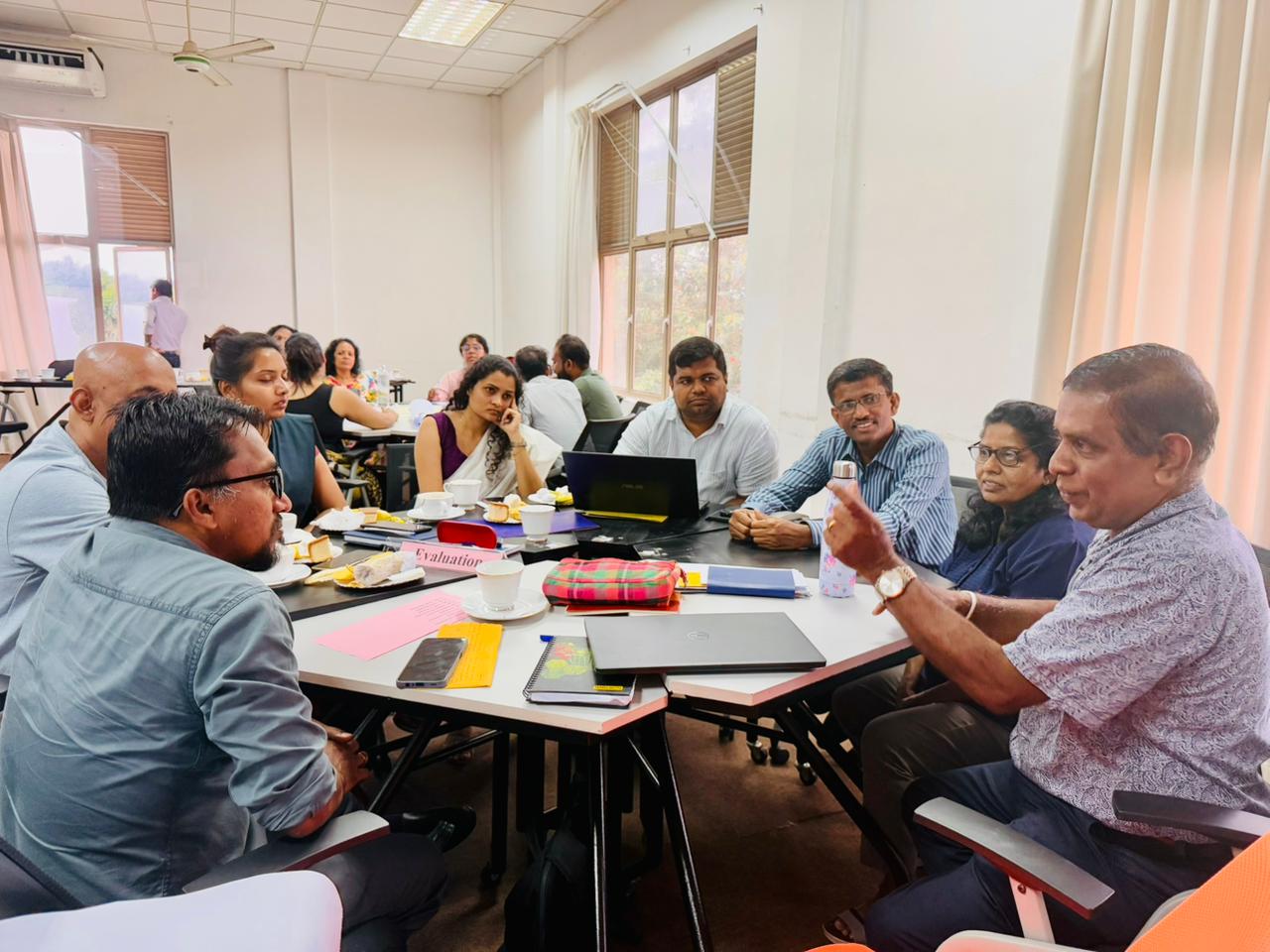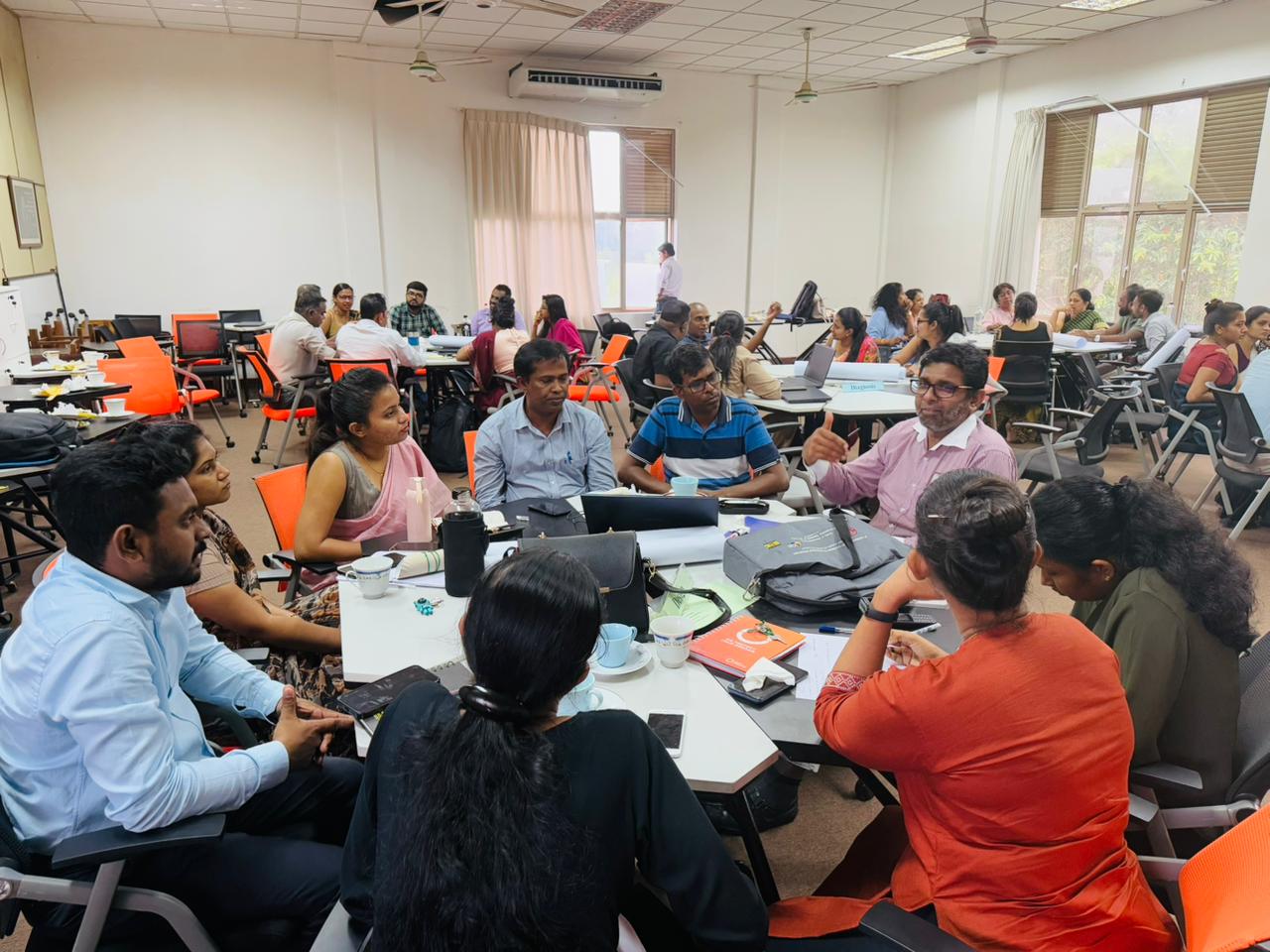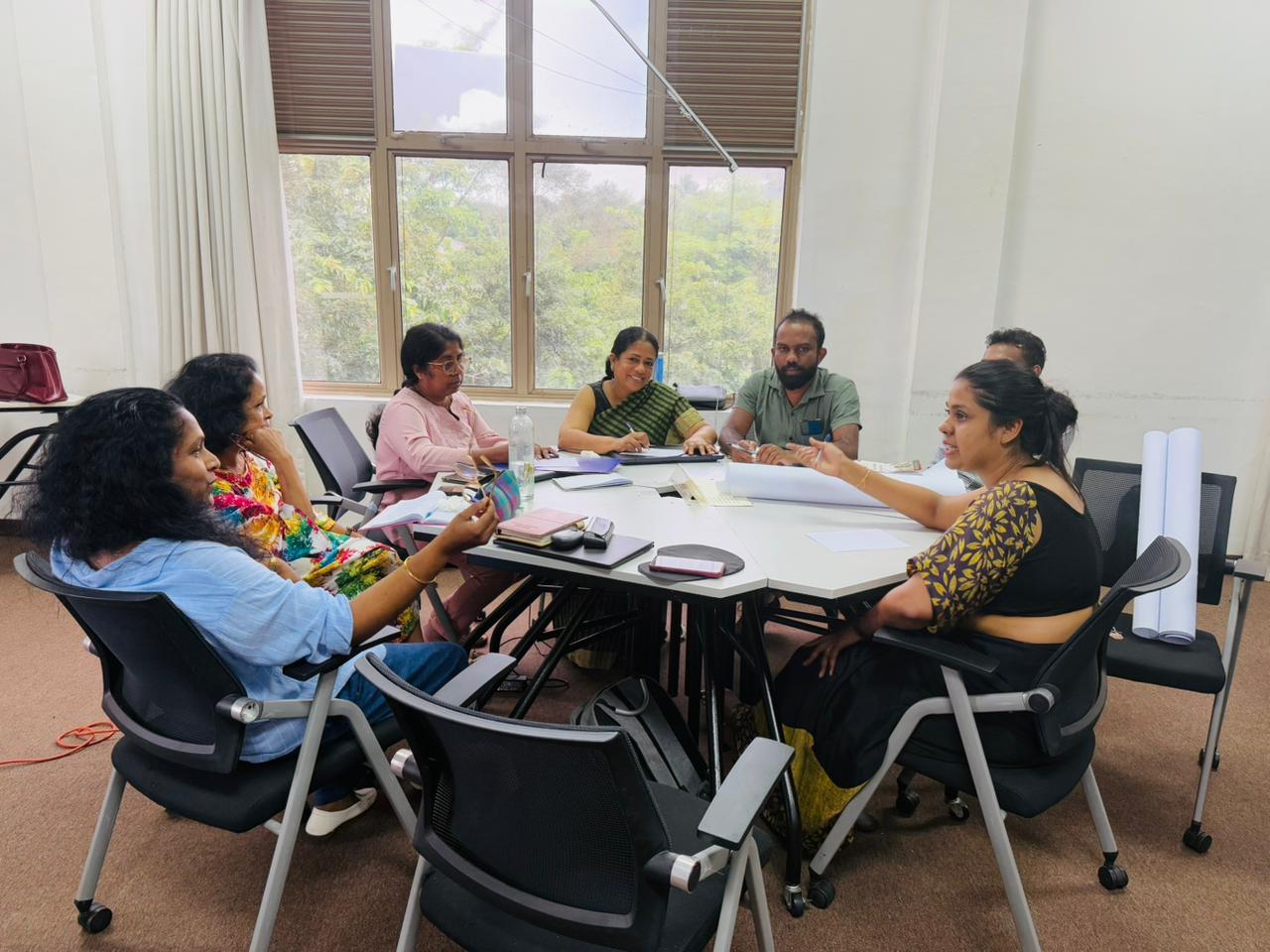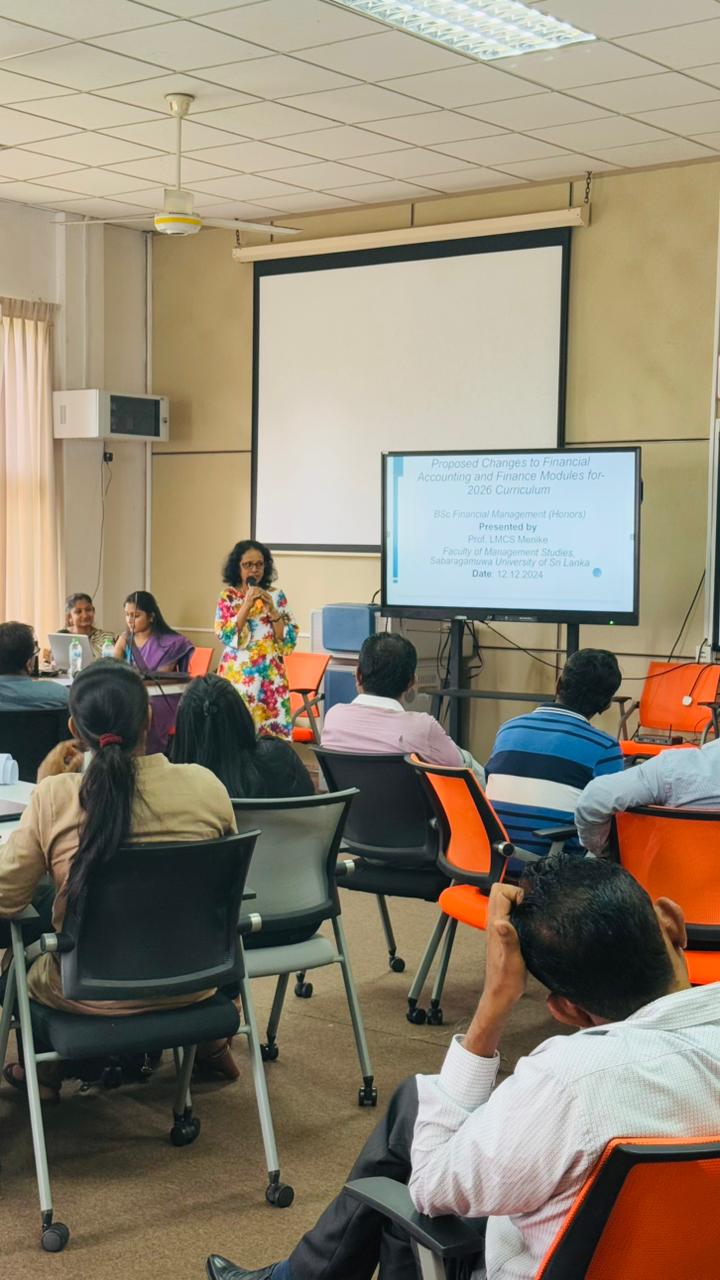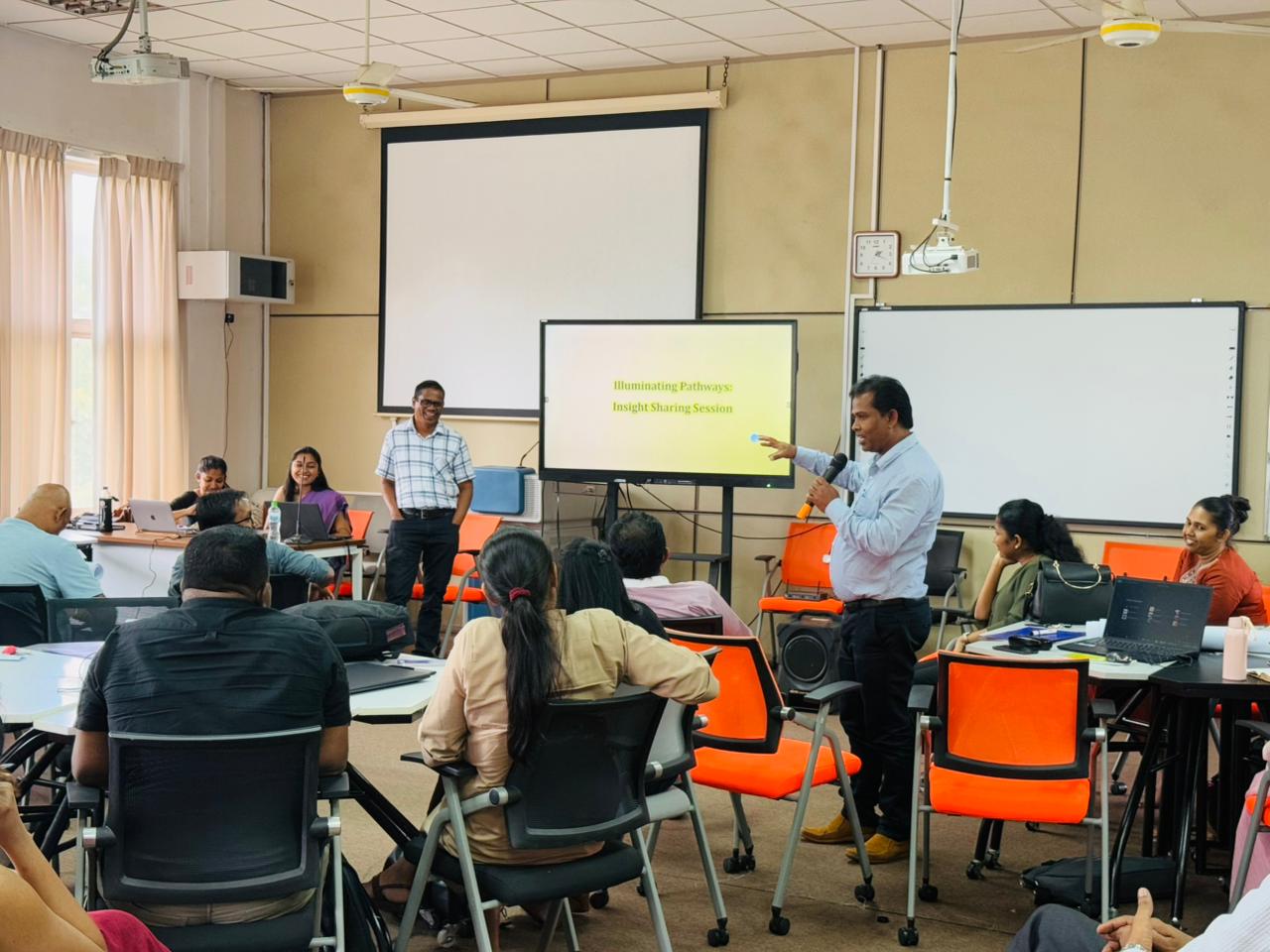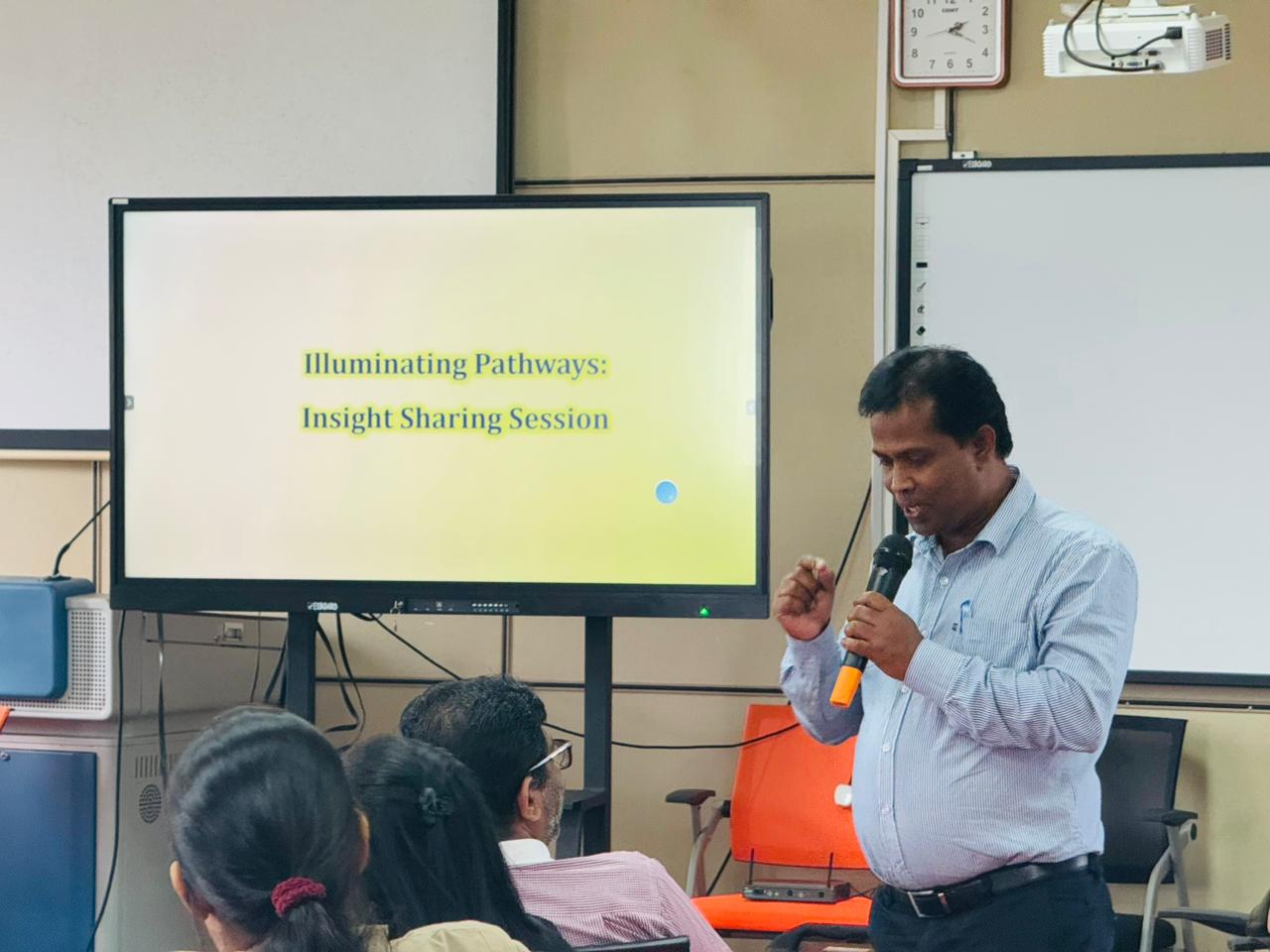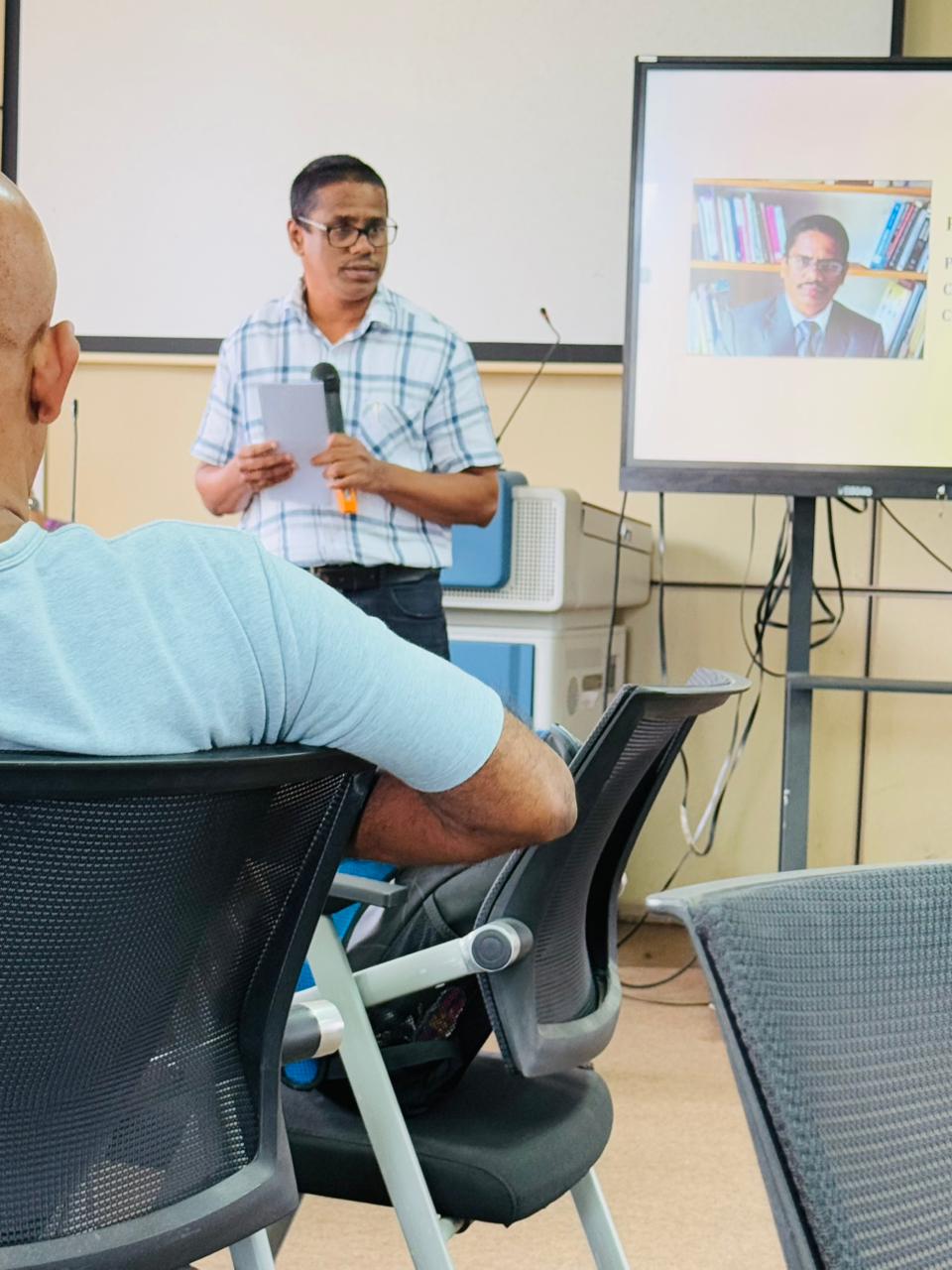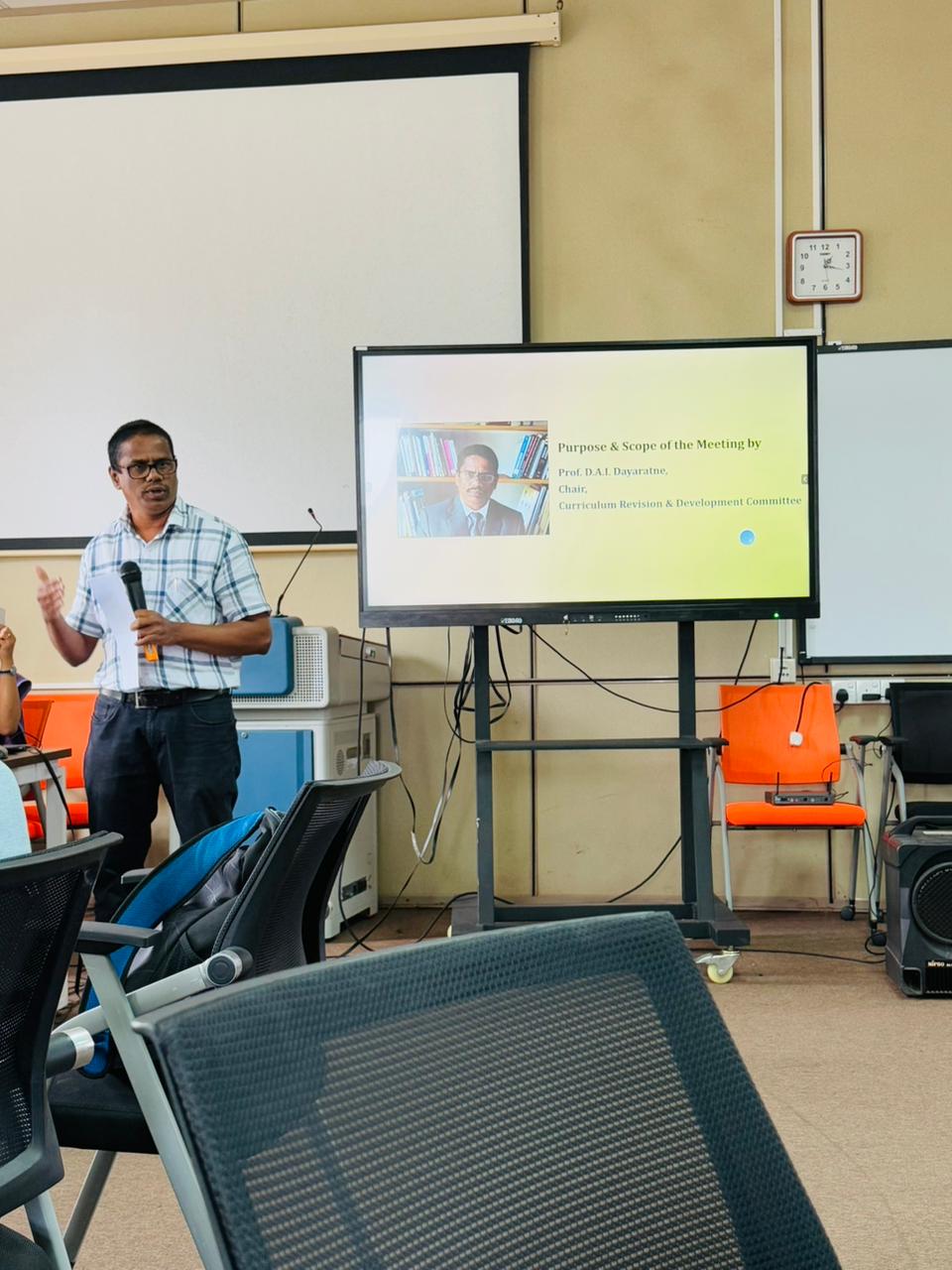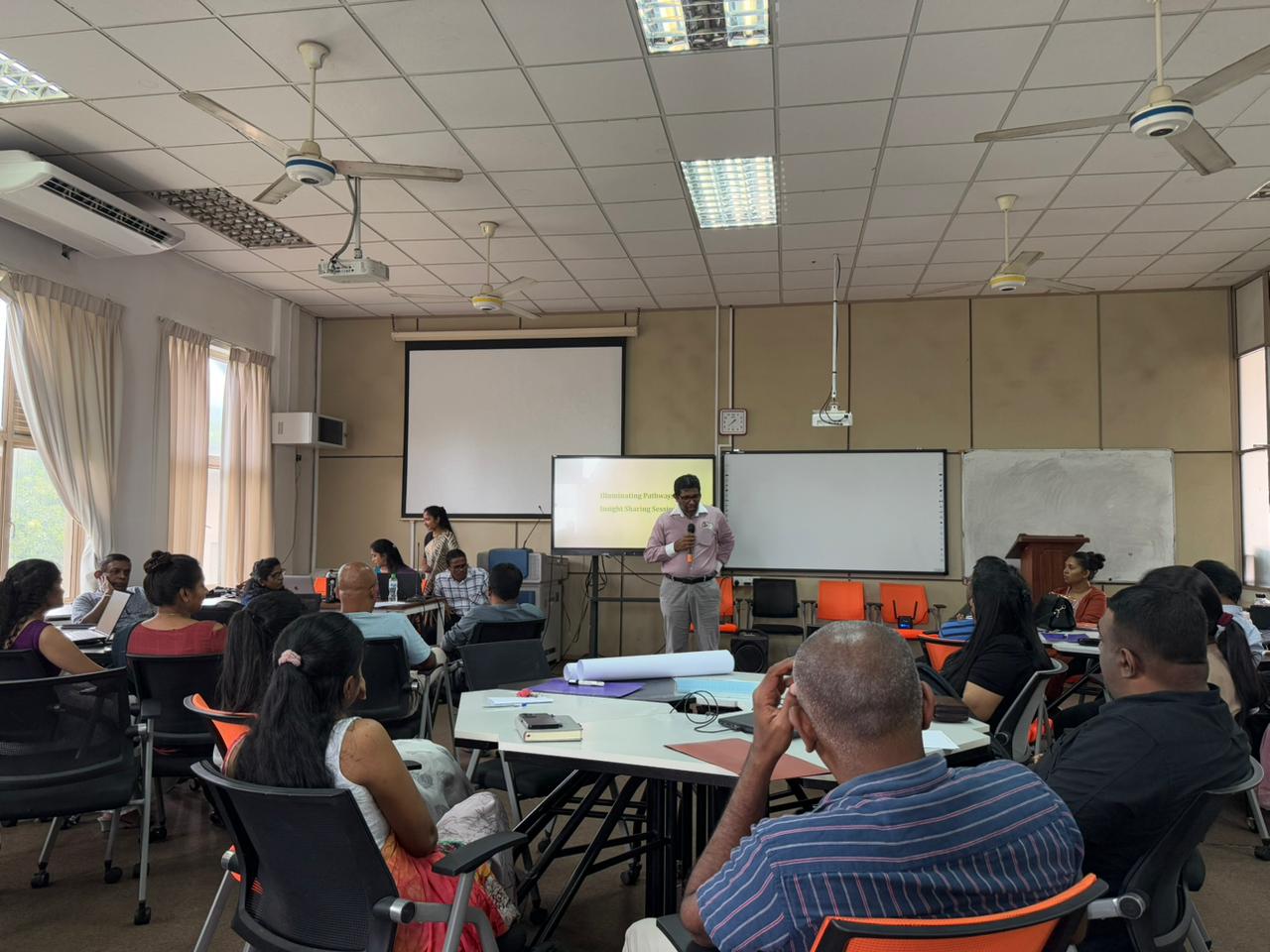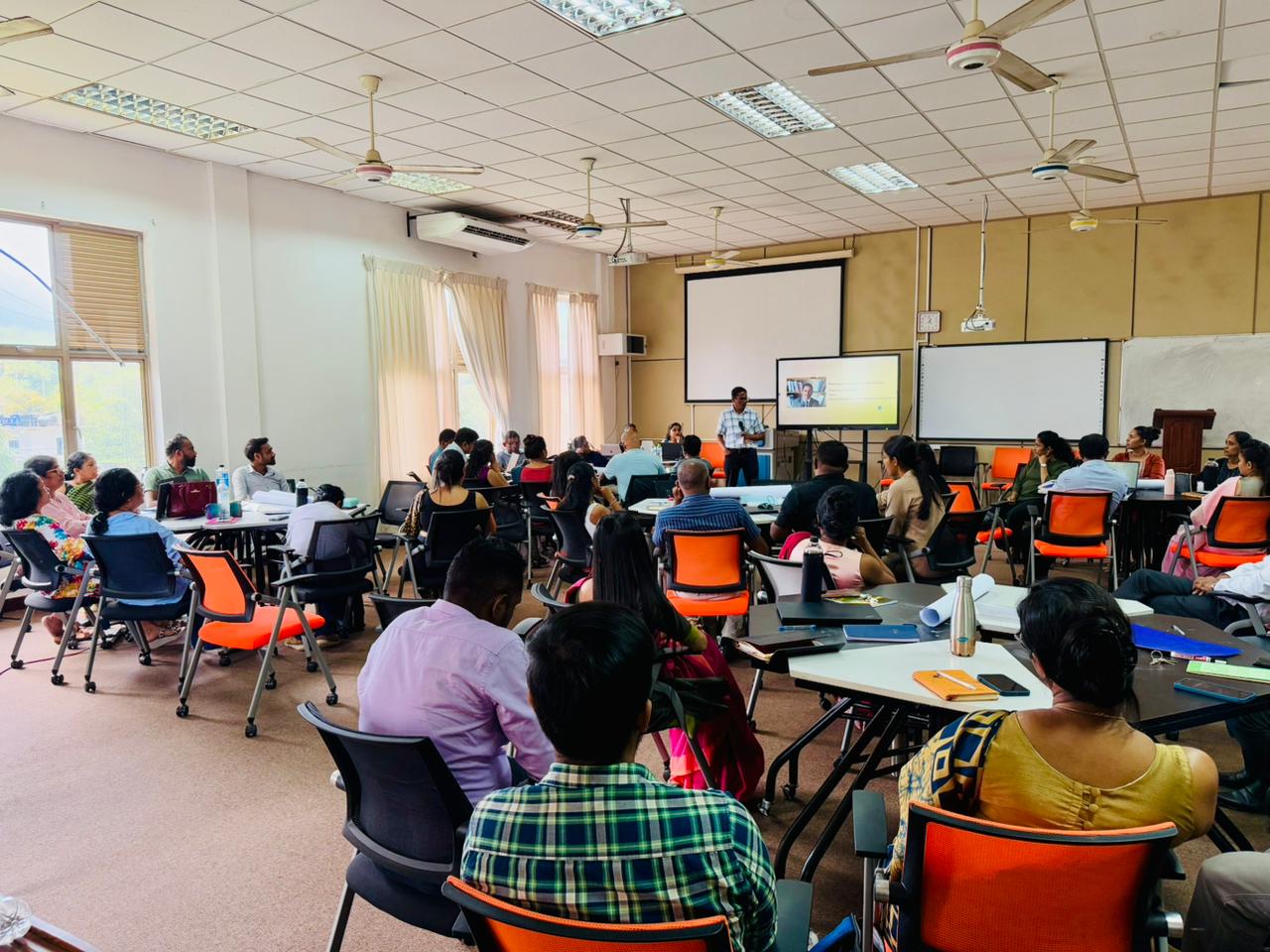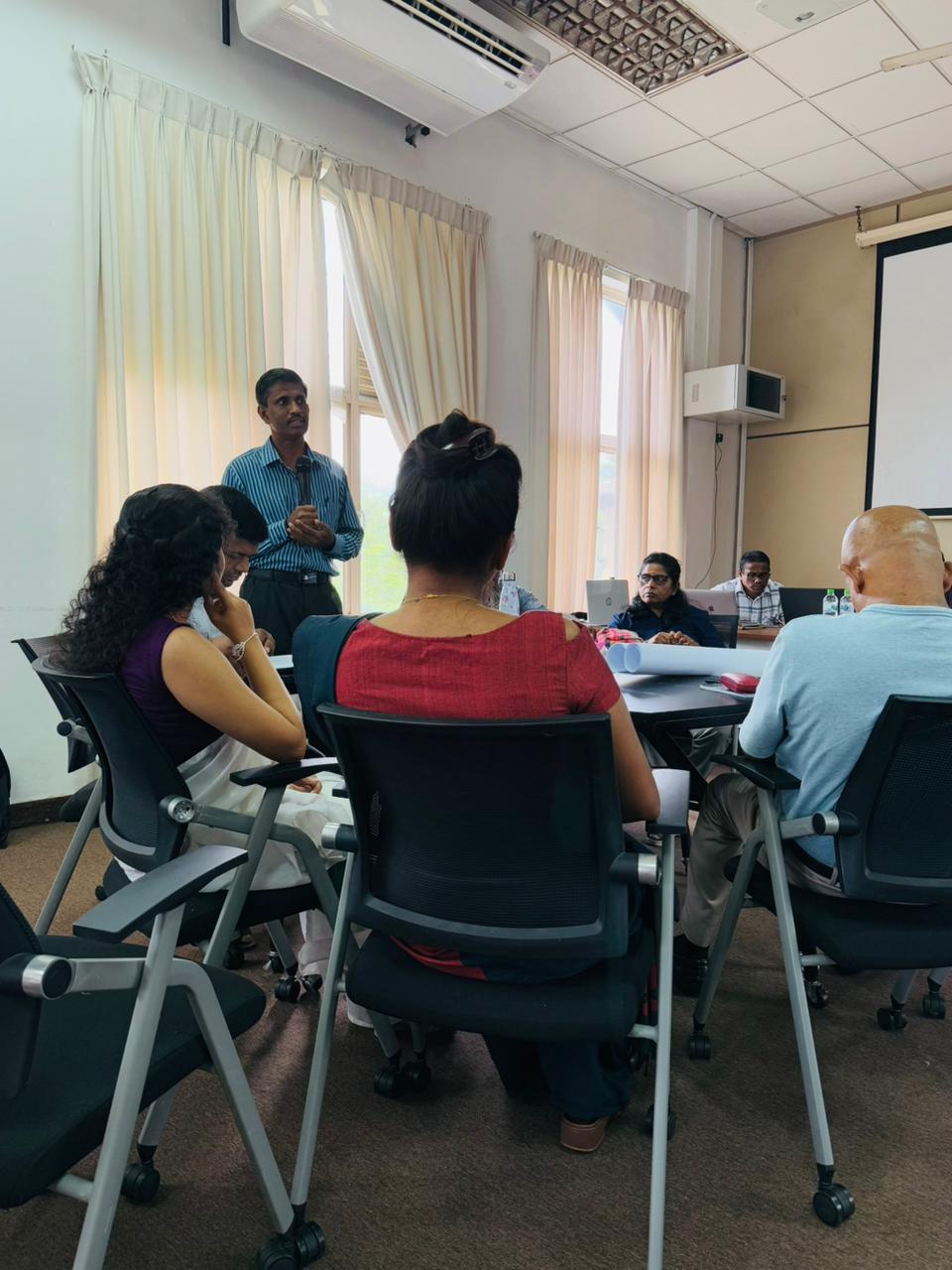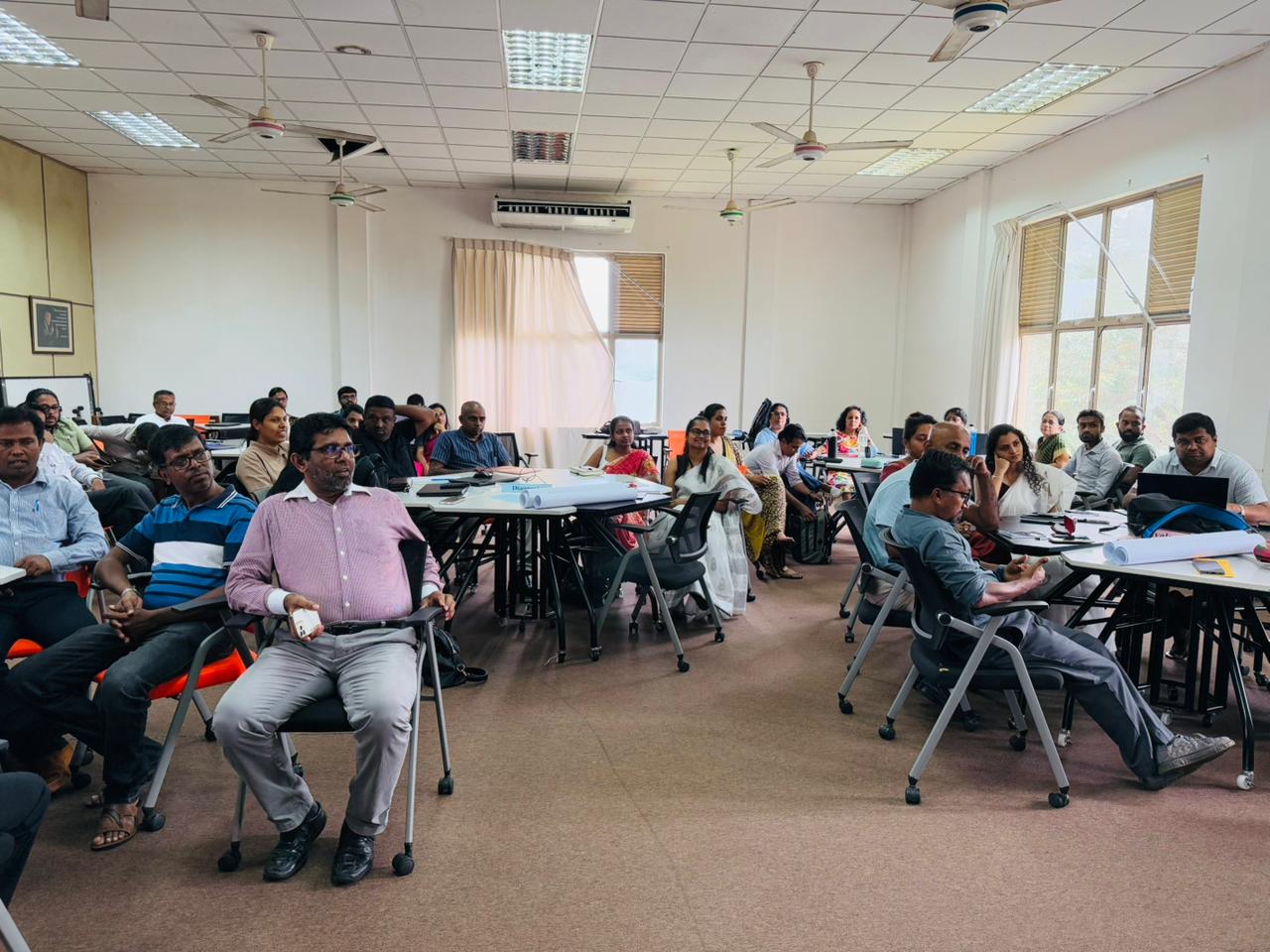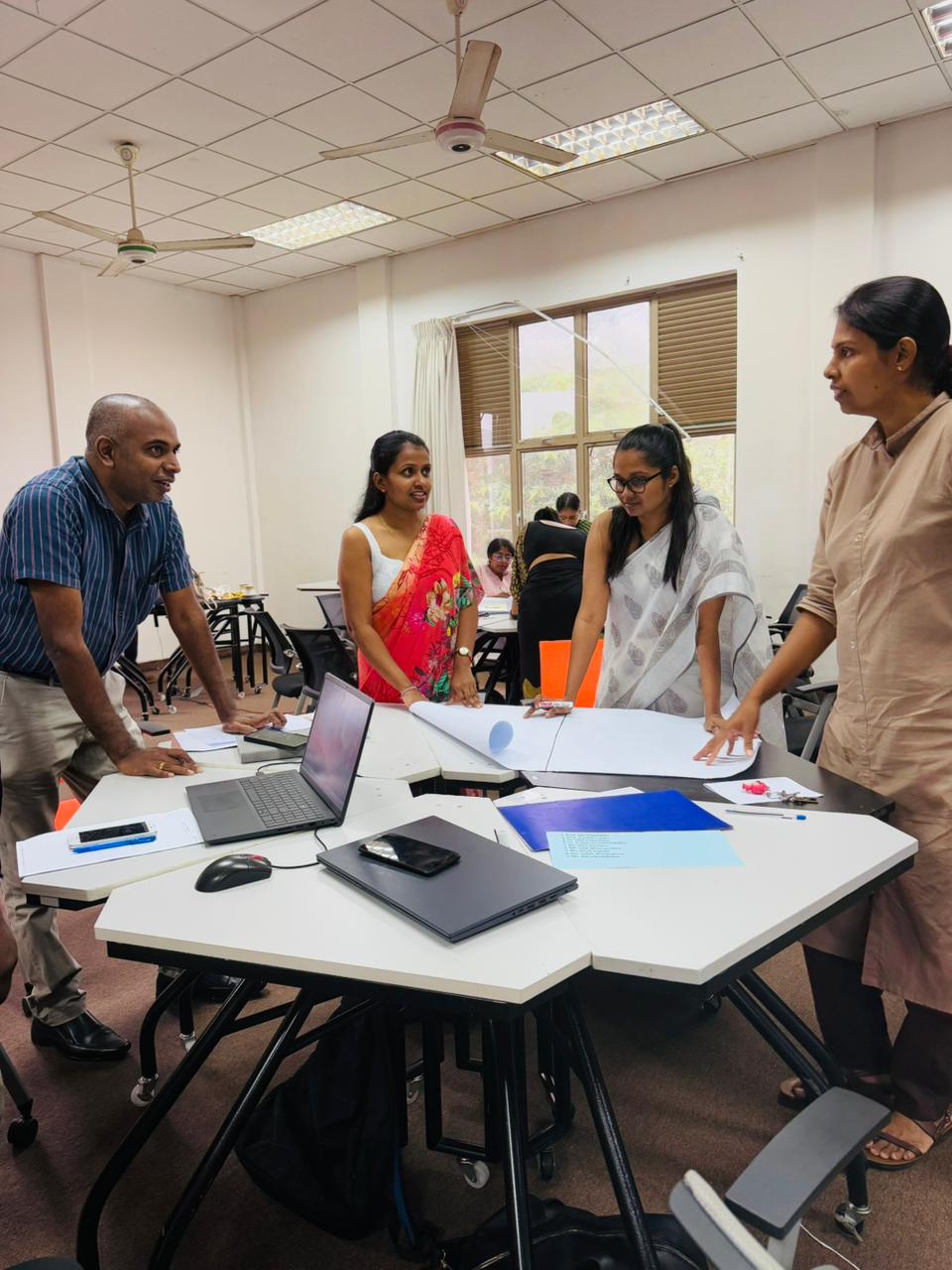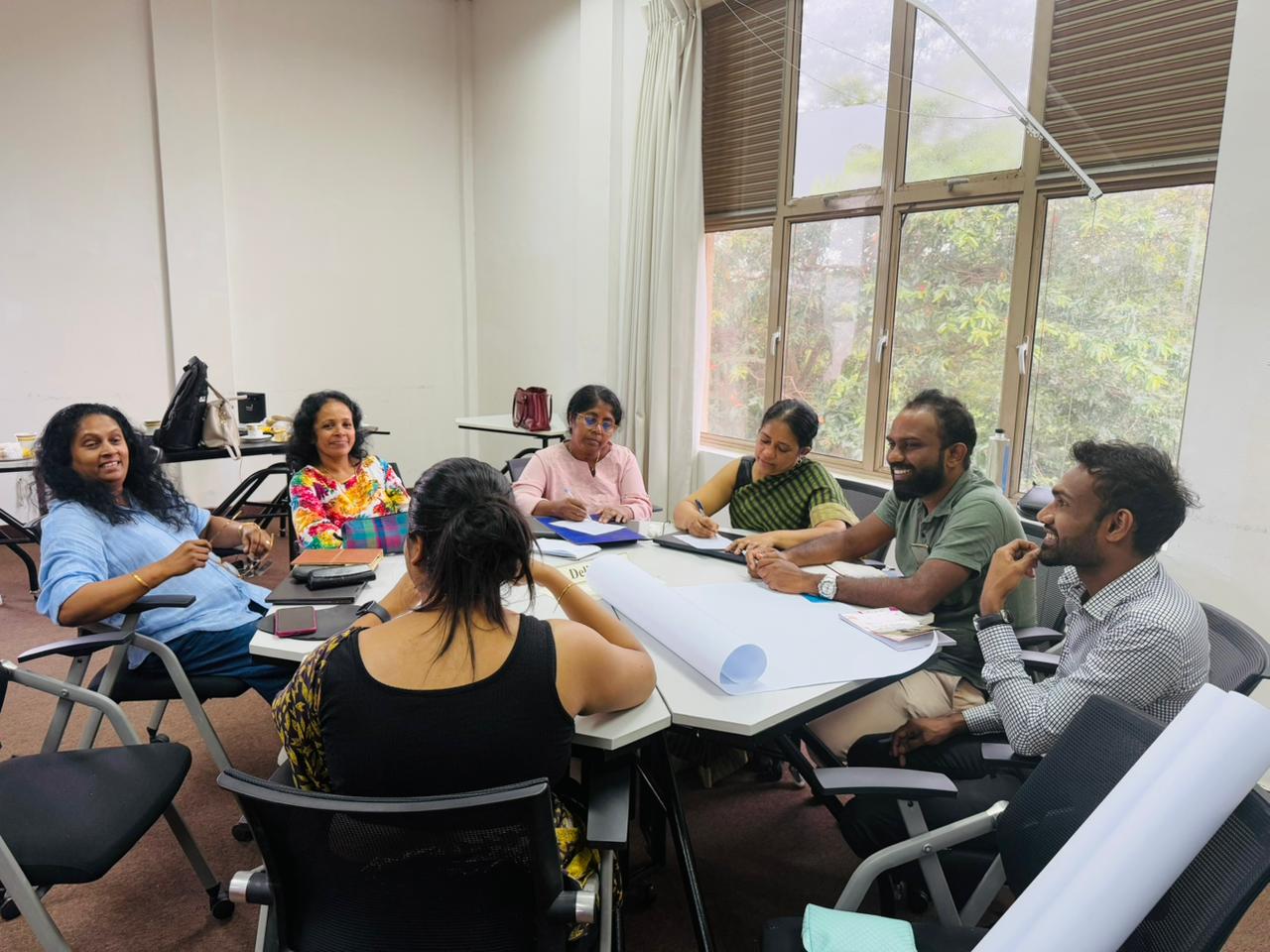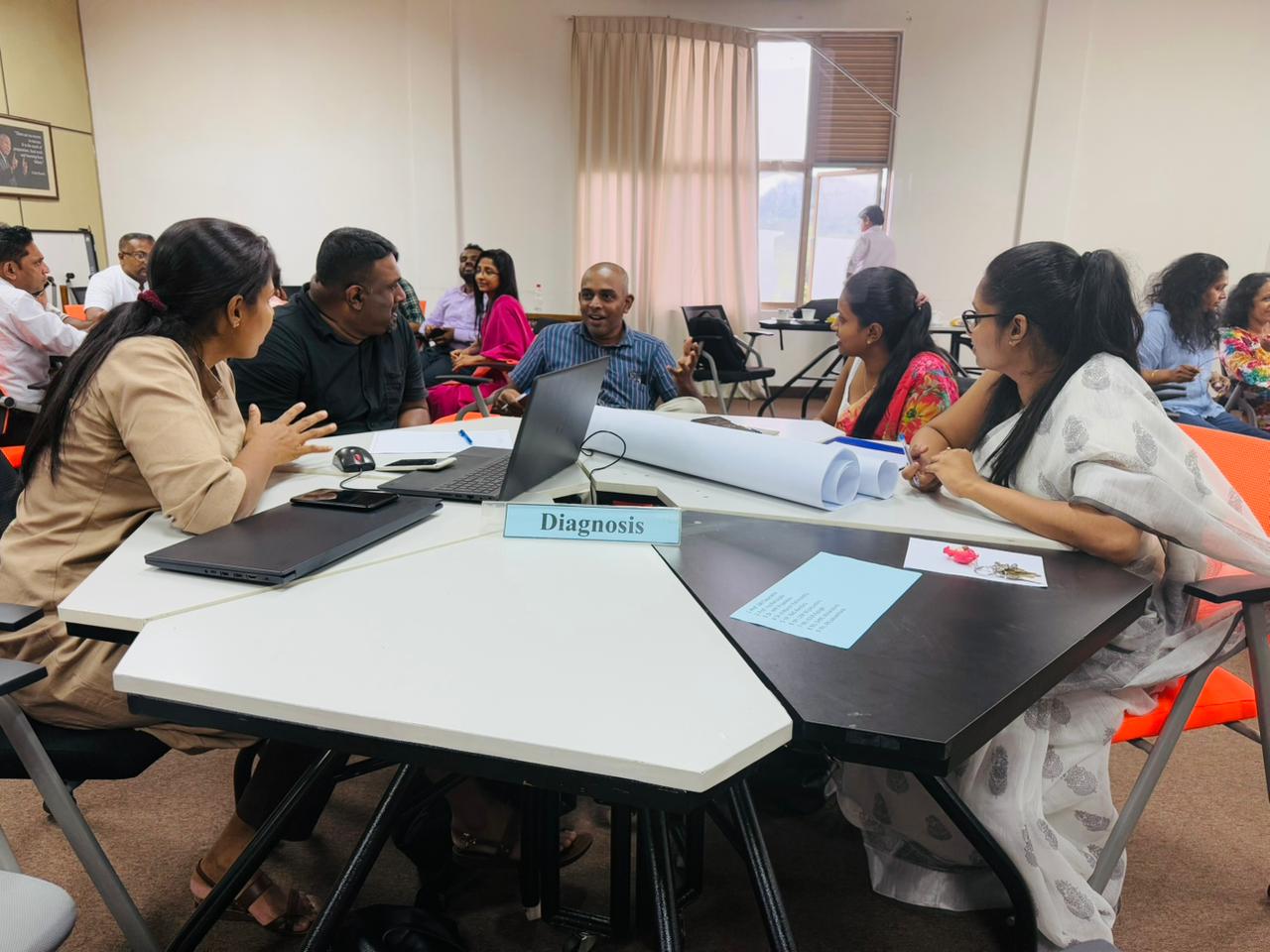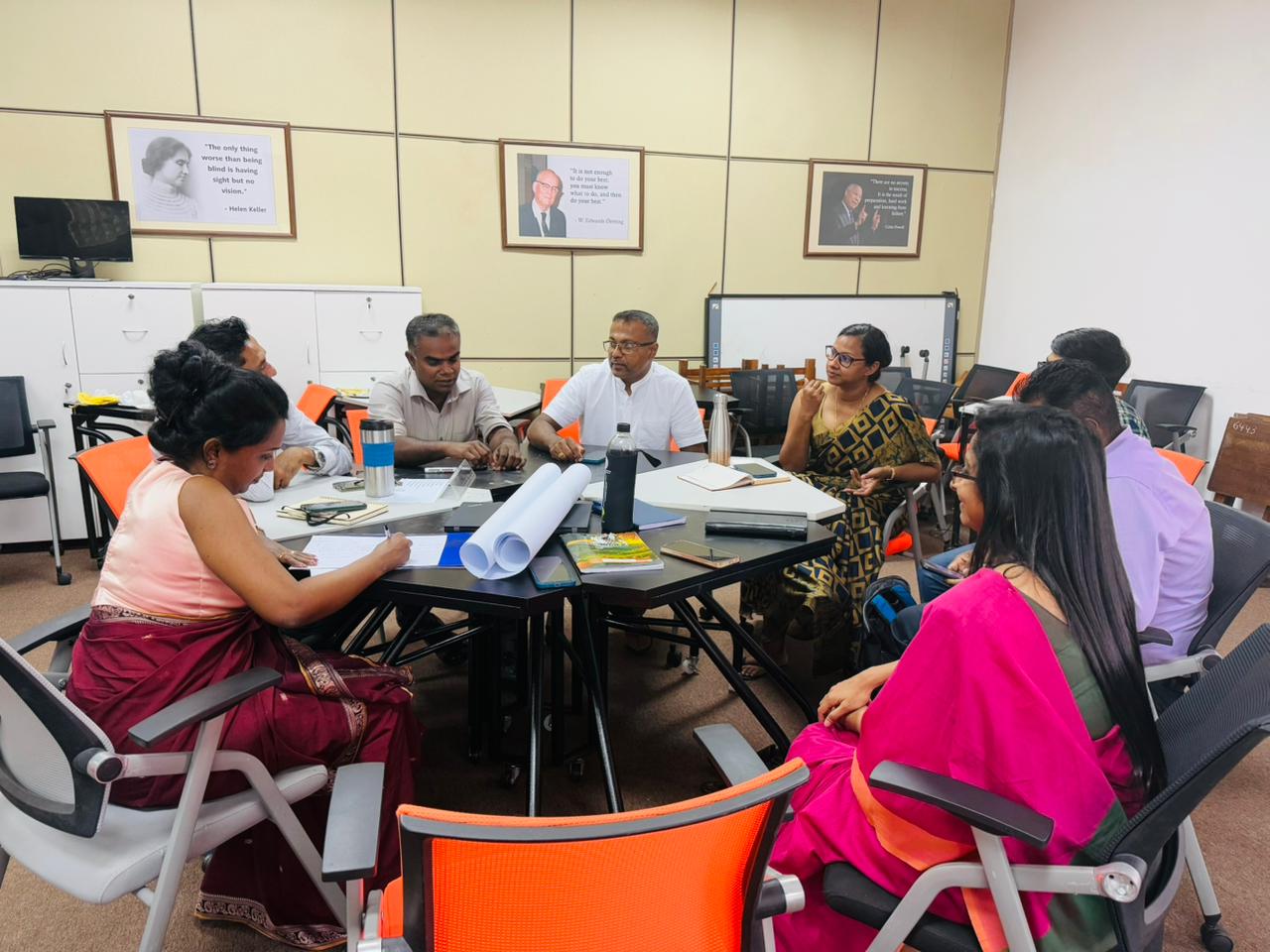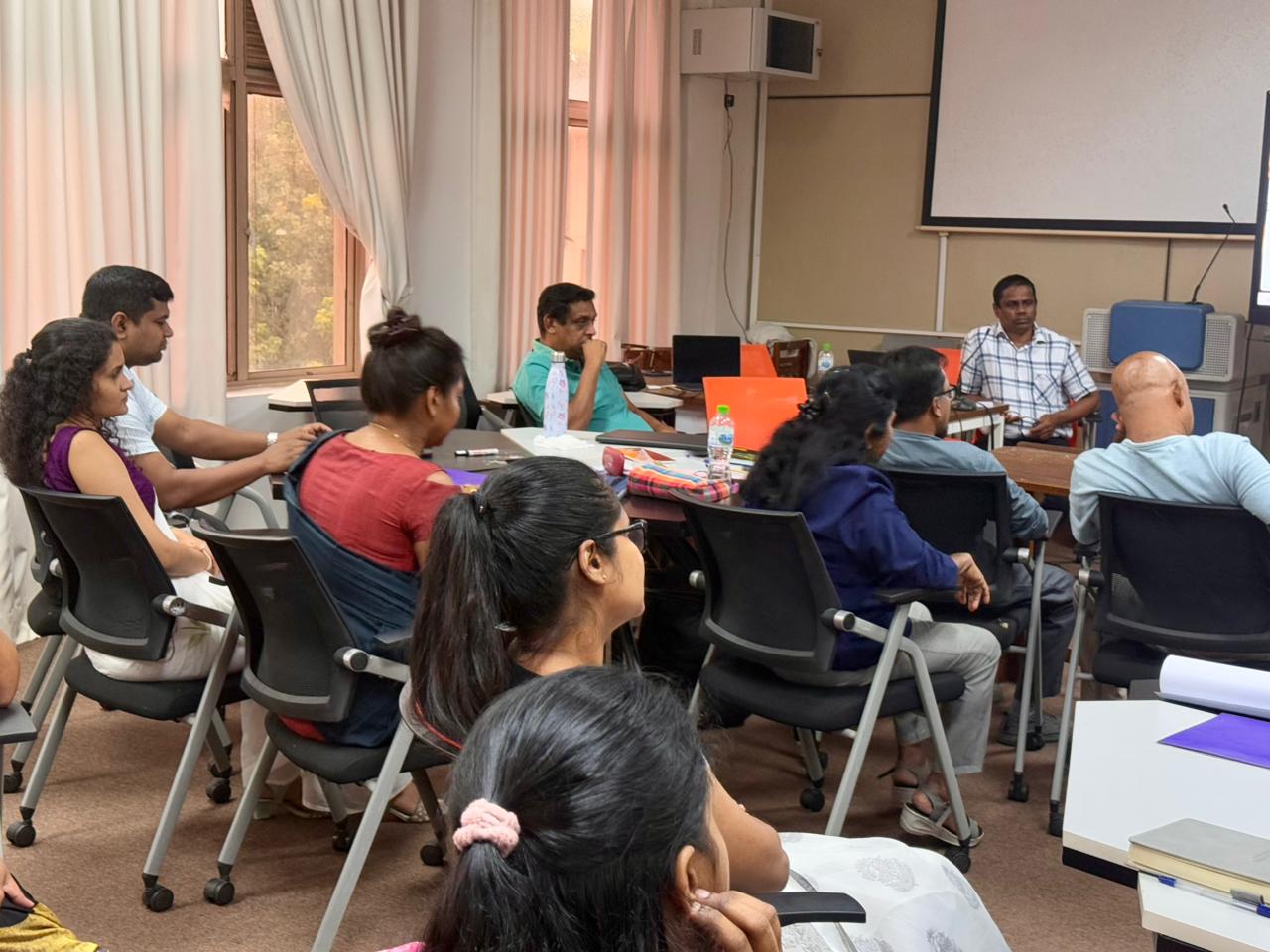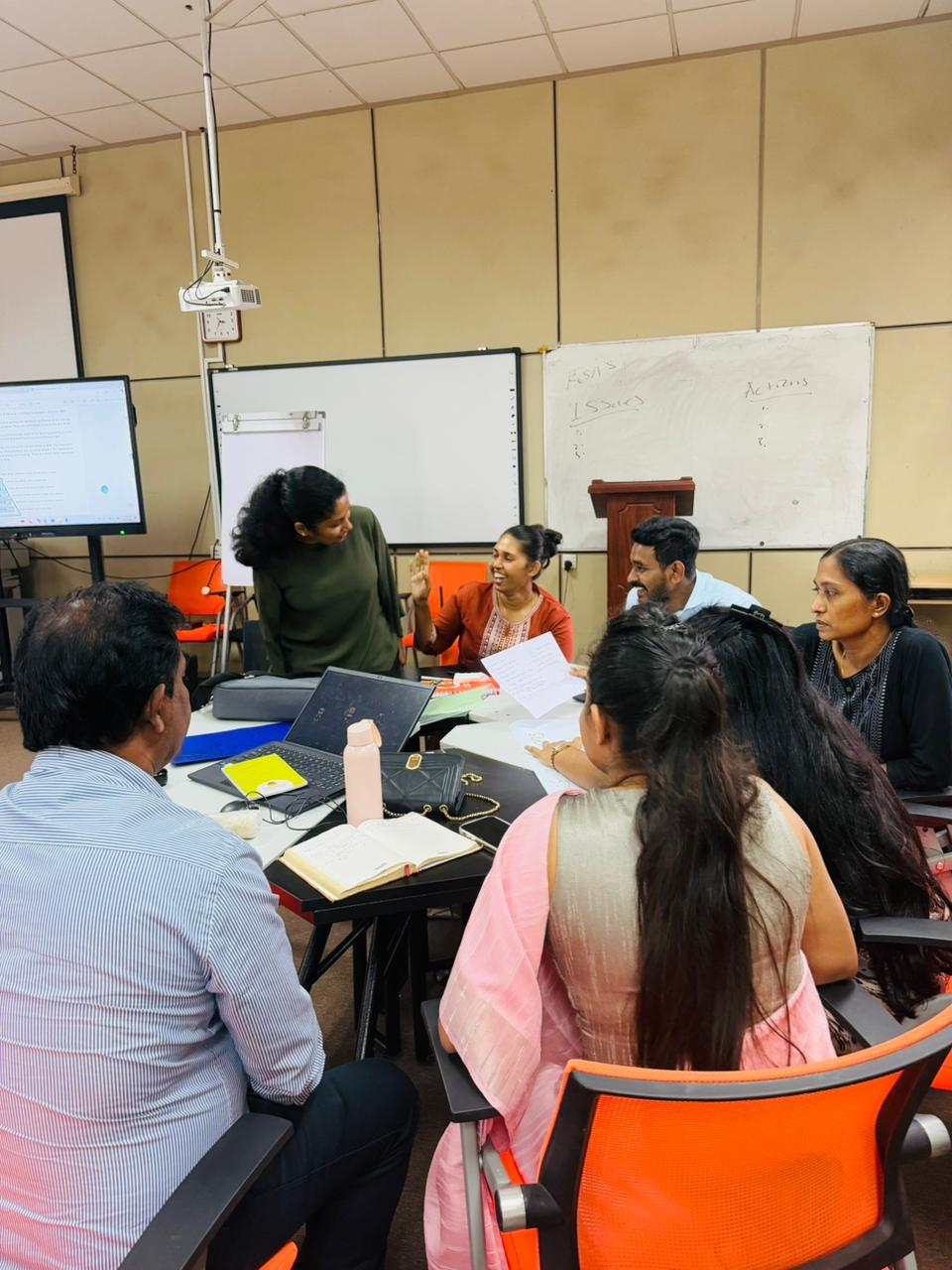Faculty of Management Studies Embarks on Curriculum Transformation for 2025–2029
The Faculty of Management Studies recently convened its first brainstorming session to initiate the Curriculum Revision and Development (2025–2029) initiative. The event, held on 12th December 2024 at Faculty Premises, marked a collaborative step forward in reimagining academic offerings to meet the dynamic demands of the global educational and professional landscapes.
The session opened with remarks from Prof. Athula Gnanapala, Dean of the Faculty, who outlined the core aspirations for the curriculum revision. He emphasized the need to enhance quality, bolster competitiveness, and integrate industry-relevant elements while fostering soft skills among students. The vision of creating a transformative and forward-thinking curriculum set the tone for an engaging and insightful session.
Prof. Indunil Dayaratne, Chair of the Curriculum Revision & Development Committee, expanded on this vision by presenting a comprehensive and systematic approach to curriculum development. He emphasized the significance of regularly updating academic content to reflect contemporary trends and integrating advanced delivery methods to enhance student engagement. By placing quality assurance at the core of the process, he underscored the importance of maintaining high standards while meeting the evolving needs of both academia and industry. Furthermore, he elaborated on the necessity of designing a curriculum that not only adheres to current benchmarks but is also forward-looking, ensuring it equips students to navigate and excel in future challenges and opportunities with confidence.
A distinguished academic panel comprising experts such as Prof. M.S.M. Aslam, Prof. L.M.C.S. Menike, Prof. Athula C. Gnanapala, Prof. Dunusinghe G. Dharmarathna, and Prof. R.V.S.P.K. Ranathunga brought diverse perspectives to the discussion. Collectively, they advocated for aligning the curriculum with global benchmarks, integrating emerging technologies like artificial intelligence and blockchain, fostering entrepreneurial thinking, and promoting sustainability. Their overarching consensus was clear: the revised curriculum must prepare students for a rapidly changing world while nurturing innovation and adaptability.
The session also featured collaborative group discussions, where participants were divided into five thematic teams, each focusing on a critical aspect of curriculum development:
Diagnosis: This group concentrated on identifying foundational needs, emphasizing sustainability and ethical practices as core principles. They proposed the integration of AI and human intelligence to develop problem-solving skills and recommended fostering strategic thinking and emotional well-being among students.
Design: Focused on aligning curriculum content with stakeholder expectations, this group stressed the importance of reducing redundancy and ensuring a manageable credit load. They also highlighted the need for personalized learning approaches to cater to diverse student needs while maintaining academic rigor.
Delivery: Addressing the practicalities of teaching and learning, this team highlighted challenges such as resource constraints, outdated teaching methods, and limited industry exposure for faculty. Their recommendations included leveraging innovative delivery methods, enhancing faculty development, and improving infrastructure to support modern pedagogical practices.
Evaluation: This group examined assessment strategies, advocating for a stronger alignment between evaluations and learning outcomes. They proposed diversifying assessment methods to include practical components, continuous feedback, and fair evaluation processes to better measure student competencies.
E-Learning: With the rise of digital education, this team focused on improving the faculty’s e-learning capabilities. Their recommendations included enhancing digital infrastructure, providing training for lecturers, and developing engaging content to maximize the potential of virtual learning environments.
The session concluded with actionable insights and a collective commitment to redefining the educational experience for future graduates. By fostering collaboration across academic and administrative teams, the Faculty of Management Studies aims to deliver a curriculum that not only meets academic standards but also equips students with the skills and knowledge needed to excel in an evolving global landscape.
The brainstorming session represents the beginning of an exciting journey toward curriculum innovation. As the initiative progresses, the Faculty looks forward to continuing this dialogue and welcoming contributions from all stakeholders to achieve its transformative vision.

